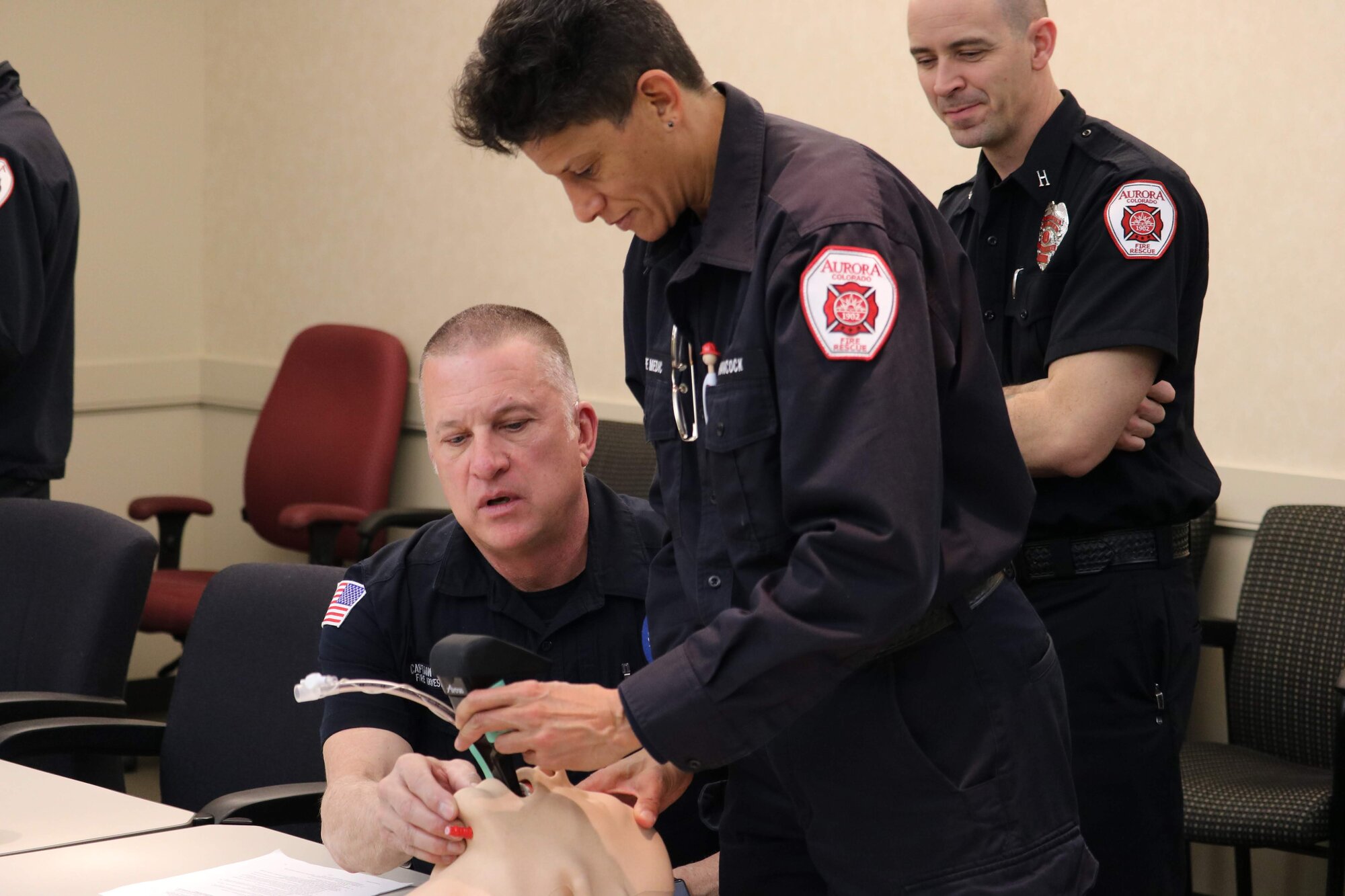Aurora Fire Rescue celebrates the department's Black women fire paramedics

AURORA, Colo. — Aurora Fire Rescue (AFR) is proud to honor one of their own, Kathleen Hancock, for not only this upcoming Women’s History Month but also Black History Month.
Hancock, a fire paramedic who joined back in 2012, was the first Black woman to join AFR’s team. Since then, Danielle Allen and Brooke Simms, both Black women, joined Hancock as fire paramedics.
“Why aren’t there more people of color?" Simms wondered. "Why aren’t there more women of color in this field?”
Simms believes one of the answers to this question is because society still might be, as she thinks, “behind the times.”
“But I think it’s because these young girls or those women did not see themselves right," Simms said. "They didn’t see people who looked like them, so it wasn’t attainable for them in their minds. And so I’m just thankful to be here in this position and see young girls light up to know that they see themselves doing this amazing job.”
Hancock said working alongside Simms and Allen is something special.
“I look and see her in me, both of them in me, and there is sometimes things not everyone can understand as a Black female, so it’s nice to bounce things off,” she explained.
Becoming a fire paramedic wasn’t something Hancock had planned to do with her life. But her perspective changed after her mother died from a brain aneurysm.
“Her death had made me look at life differently and how short it was,” said Hancock.
Hancock has played sports her whole life and loves being in a team environment, which was one of the biggest reasons why she became a first responder.

“Firefighting is probably one of the highest calls to service you can have,” Allen said.
For Allen, firefighting is a passion that runs through her veins. Her uncle was a firefighter, and her parents are medical doctors.
“It’s one of those things that definitely give me purpose to get up in the morning,” said Allen.
Being a first responder, Hancock said, “you have to be ready to expect the unexpected.”
“My way of going in and approaching it with my crew members is to know that this call is that person’s worst call for them," Hancock said. "And then going in and treating that member like it’s our family member because, truthfully, there are others out there when we’re out here working treating our family members like we do, so I always keep that in mind."
Lindsey Ford is a multimedia journalist with Rocky Mountain PBS. You can reach her at lindseyford@rmpbs.org.